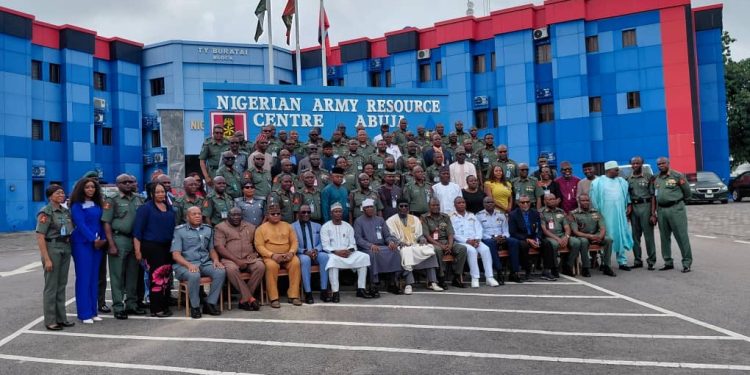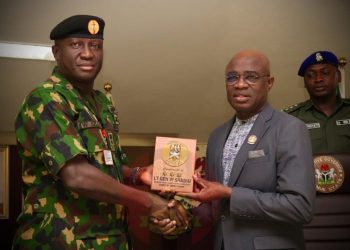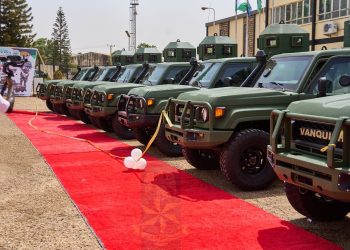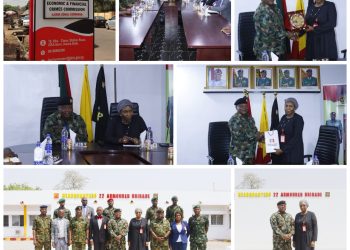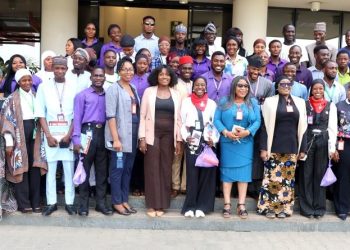By Nkechi Eze
In a significant intellectual exercise aimed at re-examining its institutional journey and crafting a more adaptive and resilient military force, the Nigerian Army, through its Research and Historical Think Tank the Nigerian Army Resource Centre (NARC), has held the third edition of its Military History Institute Seminar in Abuja. The event brought together an elite gathering of former and serving military commanders, defence scholars, policy analysts, and strategic partners to engage in deep reflections on the Army’s transformation since Nigeria’s independence, while drawing pertinent lessons to shape future reforms, doctrines, and capacity-building efforts.
Held under the theme “Historicizing the Transformation of the Nigerian Army: Independence, Lessons and Future Prospects,” the seminar served as a critical platform for knowledge-sharing and historical inquiry into the Army’s operational trajectory, strategic turning points, and doctrinal evolution. Attendees and speakers traced the Nigerian Army’s institutional development through landmark phases, from its colonial and post-independence restructuring, through the defining years of the Nigerian Civil War, to its leadership in regional peacekeeping missions, counterinsurgency campaigns, and present-day engagements in asymmetric warfare and internal security operations.
In his opening remarks, the Director General of the Nigerian Army Resource Centre, Major General Garba Wahab (Rtd), emphasized the seminar’s role as a catalyst for serious introspection and evidence-based dialogue. He described the engagement as vital to shaping future military strategy by critically examining past experiences. “We cannot continue to operate in a vacuum. Understanding our past experiences, successes and failures alike is fundamental to repositioning the Nigerian Army for the future,” he stated. “This seminar is a platform for reflection, knowledge-sharing, and the building of a more robust military institution grounded in lessons of history.”
Wahab called for a deliberate effort to integrate historical consciousness into military thinking and training, noting that armed forces that are well-rooted in their institutional memory tend to show greater resilience and innovation in the face of evolving threats. He also underscored the relevance of military history in enhancing national security policy, operational readiness, and leadership development.
Delivering the keynote address was the Special Guest of Honour, Nigeria’s former Chief of Army Staff and current Ambassador to the Republic of Benin, Lieutenant General Tukur Yusuf Buratai (Rtd), who lauded the Nigerian Army Resource Centre for maintaining the institutional vibrancy of the Military History Institute. General Buratai urged military institutions to consistently invest in historical documentation, archival preservation, and doctrinal innovation as tools for building a disciplined, professional and future-ready force. “The Nigerian Army must document and study its history not just for ceremonial purposes but to guide doctrine, enhance professionalism, and avoid strategic missteps. Our past is rich with lessons that can help us anticipate and prepare for the future,” he said.
According to him, the past offers critical insights that can sharpen operational foresight, guide training curricula, and refine strategic culture. He added that military history plays a profound role in shaping national identity and patriotism, particularly within the armed forces.
Also contributing to the discourse was retired Major General James G.K. Myam, who stressed the role of historical awareness in modern defence planning and policy development. He noted that many present-day operational challenges confronting militaries around the world including Nigeria’s can be better managed through deep historical analysis and a culture of learning from both battlefield experiences and institutional policies. “When you study the campaigns of the past, you learn the consequences of misjudged strategies or underappreciated threats. You become more agile, more discerning,” he said.
The seminar featured a series of presentations and moderated panel discussions with subject matter experts covering a diverse range of topics. These included the evolution of Nigeria’s defence policy since independence, an in-depth analysis of civil-military relations during and after the Nigerian Civil War, and the strategic implications of Nigeria’s participation in multinational peace support operations. Other sessions addressed how the Nigerian Army’s research and development (R&D) initiatives have progressed since 1999, and how best to recalibrate its mission and vision to respond to global defence trends, emerging technologies, cyber warfare threats, and joint inter-agency operations.
Speakers unanimously agreed that while the Nigerian Army has made tremendous progress in modernizing its capabilities and aligning with international standards, the road ahead requires even greater reforms in training, doctrine, procurement systems, and information warfare. Discussions also delved into the Army’s growing humanitarian footprint in internal security operations and civil support missions across Nigeria, noting that non-kinetic operations now form a core part of the Army’s civil engagement and conflict mitigation strategy.
There were extensive deliberations on the importance of consolidating regional partnerships, especially within the framework of the Economic Community of West African States (ECOWAS), and leveraging military diplomacy to advance national and sub-regional security interests.
Participants commended the Nigerian Army Resource Centre for sustaining the intellectual rigor of the Military History Institute Seminar and institutionalizing strategic thinking within the force. Many noted that the outcomes of the seminar would provide a valuable framework for doctrinal reviews, professional military education, and internal leadership development efforts.
In his closing comments, General Wahab reiterated the commitment of NARC to continue driving intellectual innovation in the Nigerian Army and influencing national defence discourse. He reaffirmed that the Military History Institute Seminar series would be expanded in the coming years to involve broader civilian-military engagement and input from international think tanks, military historians, and strategic studies institutions.
The Nigerian Army’s commitment to organizing such knowledge-based engagements signals a deeper understanding of the interconnectedness between military effectiveness, historical perspective, and institutional adaptability in a fast-evolving security environment. As the country continues to confront diverse threats across its geo-political zones, the insights gained from historical analysis and strategic seminars such as this will undoubtedly play a pivotal role in shaping Nigeria’s military posture, doctrine, and global defence identity.


